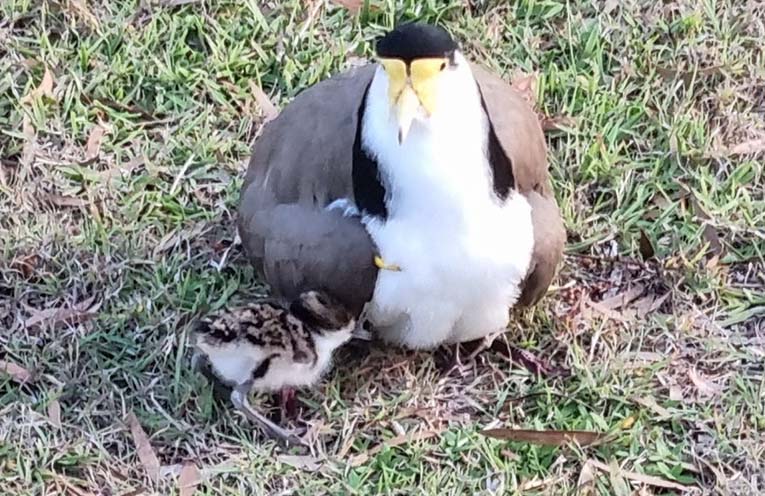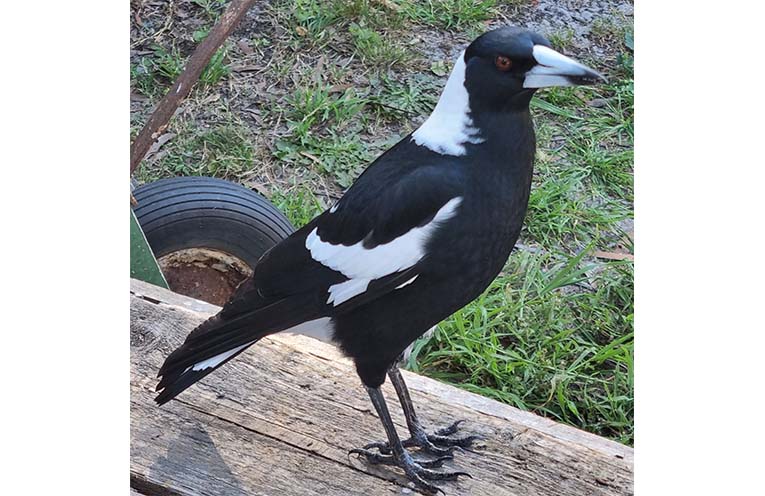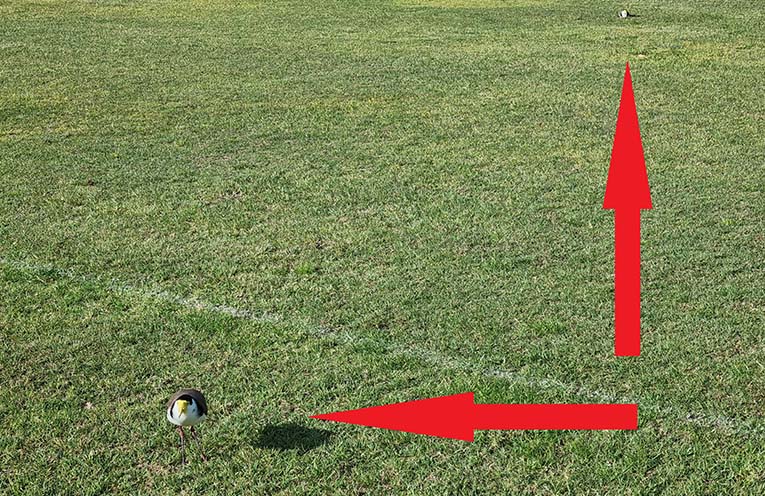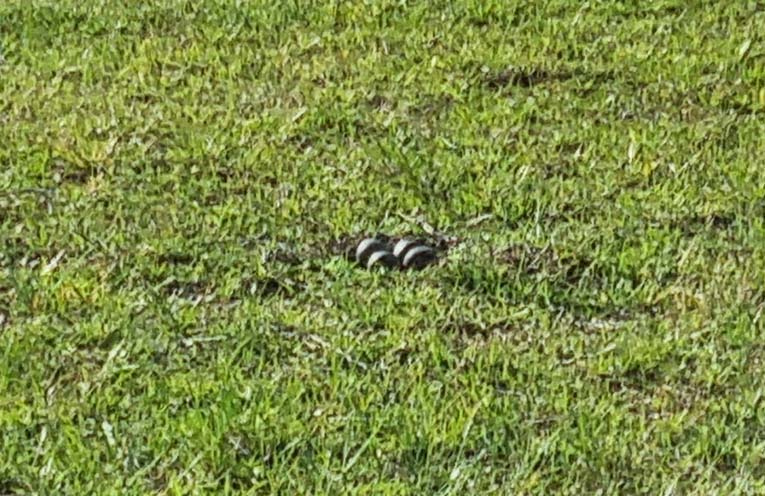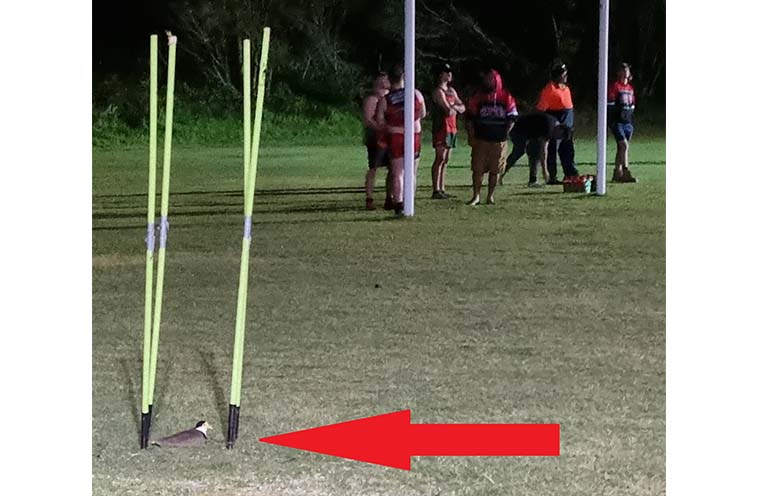
NESTING season has begun for many bird species, and smart humans should heed the warnings of territorial birds fiercely defending their turf.
Residents should understand that birds are protected by NSW law, making it a criminal offence to attempt to kill the birds, collect their eggs, or harm their young.
 Advertise with News of The Area today.
Advertise with News of The Area today.It’s worth it for your business.
Message us.
Phone us – (02) 4981 8882.
Email us – media@newsofthearea.com.au
Of particular concern is a Masked Lapwing Plover couple that has chosen to ‘nest’ in the middle of the Myall Park football field.
Not bothering to construct a tree nest, the Plover typically prefers roosting for several weeks in the middle of open areas, such as parks, beaches and fields, regardless of human activity.
While the ground-nests may be completely overlooked, the plover parents will open fire with their terrifying ‘kekekeke’ shriek at unwary pedestrians, followed by a tag-team swooping manoeuvre as they ward off all threats.
While the Myall is home to countless birds, two of the most protective, therefore aggressive, bird species are the Plover, and the common Magpie.
Magpies, according to the Australian Museum, like nest-building in the outer branches of trees, up to 15 metres from the ground, overlooking wide, open spaces.
That description perfectly matches the tree-lined streets and sports fields that humans establish throughout our residential areas, and the Magpies have very easily adapted to live among us, even remembering faces for up to five years.
They build relationships with the humans in their territories, and they can also hold a grudge.
The Magpie’s “carol sweet and strange” was immortalised in Banjo Paterson’s 1892 poem “In Defence of the Bush”, and this year also won the ABC Science poll as ‘Australia’s favourite animal sound’.
Ecologist Dr Farley Connelly, appearing on the ABC’s ‘Catalyst’, described the Magpies’ intelligence.
“They can do associative learning, reversal learning, and have a heightened sense of curiosity.”
The NSW Office of Heritage and Environment recommends that any birds that are considered a ‘serious menace’ should be reported to the local Council, or the nearest National Parks and Wildlife Office.
By Thomas O’KEEFE

